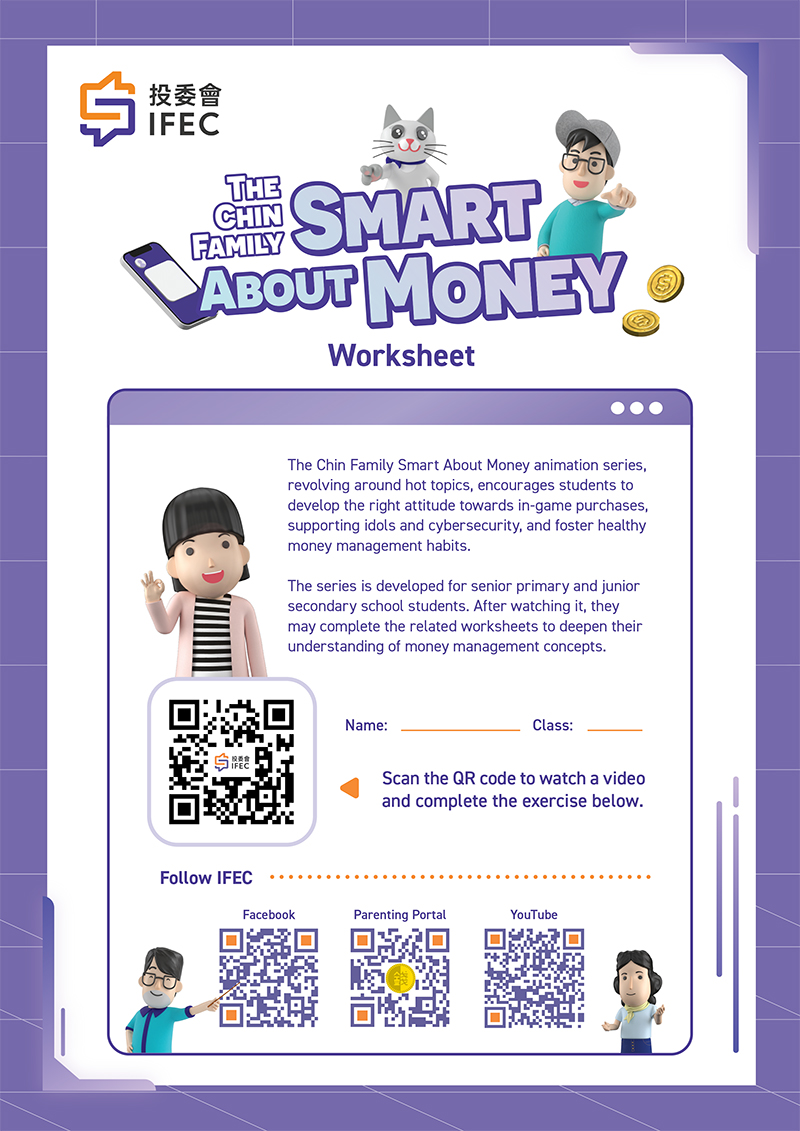With digital advancement and the growing popularity of smartphones, children and teenagers are exposed to the internet at a young age and are able to find information about investment and financial management online. In order to ensure that they use the internet wisely and stay away from scams, parents can help to improve their digital financial literacy and teach them about cybersecurity from an early age.
Potential scams targeting young generation
The online world is full of scammers. Children and teenagers may easily fall victim to different kinds of online traps, such as fraud, information security risk, undesirable information or improper behaviours. Here are some examples of online scams that they may encounter.
- Order and pay for an item online but it never arrives and the seller disappears.
- Someone offers to sell a game account at a low price in a chat room and simply disappears after tricking you to top up the account at a convenience store.
- Click an invitation link sent by another online game player and register with your parent’s credit card information on a fake website.
- Download a malicious software from a website or dating app that allows scammers to steal your personal information or lure you to send private photos and then blackmail you for money later.
- “Like” a page or pretend to be a buyer to earn commission but fail to recover the money paid or commission.
The internet is now an integral part of our everyday lives. To prevent children and teenagers from falling into online scams, parents should be aware of their children’s behaviours or social circles online and teach them about cybersecurity.
Children and teenagers should be taught that there are many scammers in the online world, and that they should handle money transactions and personal information carefully, especially their ID card numbers and bank account information. Parents should share the following cybersecurity tips with their children.
Cybersecurity tips for children and teenagers
1. Seek parental consent before shopping online
Children and teenagers should seek parental consent before making any online purchases. They should never use their parents’ credit card for online transactions or to download apps and music without permission. They should only choose official platforms or reputable sellers and try to collect the items in person or pay on delivery.
2. Stay alert when making friends online
Children and teenagers should be cautious when accepting friend invitations from strangers online. They should never share any intimate photos, and trust new acquaintances so easily.
3. Do not disclose personal information
When handling money transactions or personal information, especially their ID card numbers and bank account details, exercise caution to prevent potential financial loss.
4. Learn to identify online traps and scams
As scammers and traps are becoming trickier, parents and children should be aware of the latest online scams. Children and teenagers should learn to identify and handle deceptive information and scams.






